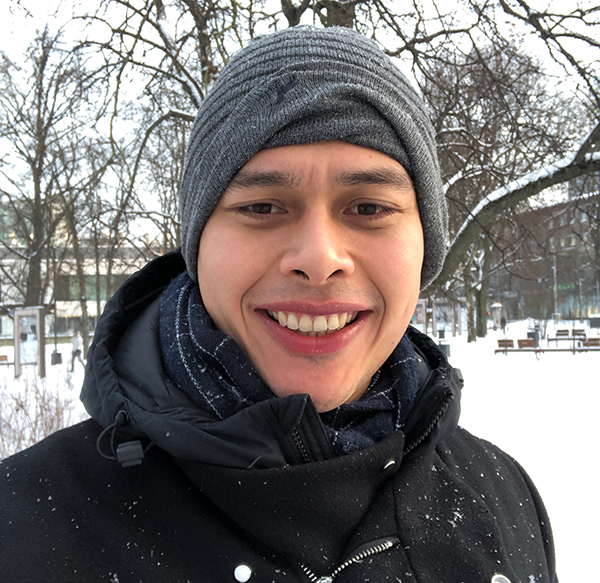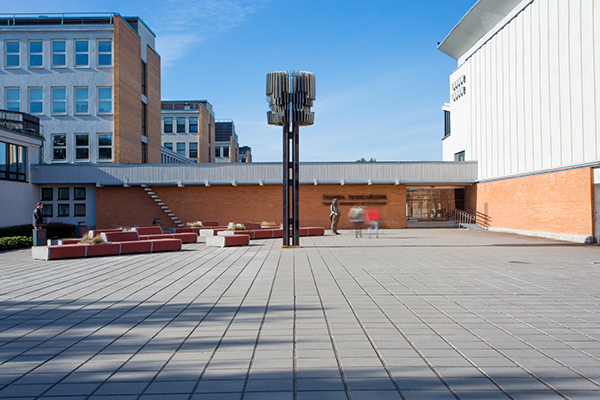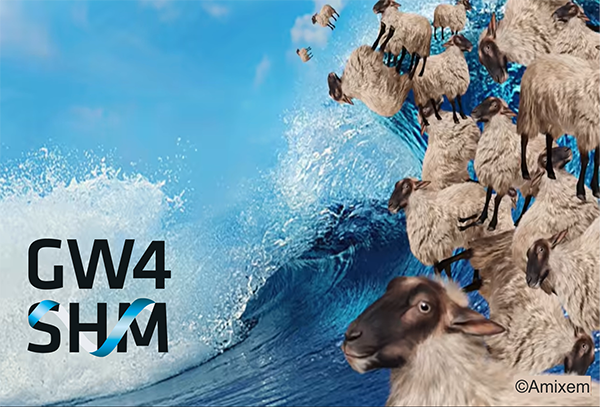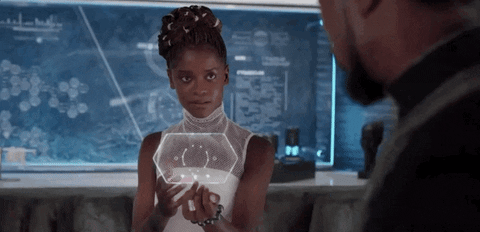If you are thinking about doing a PhD, but you don’t really understand what doctoral studies look like, then this post is for you! - Omar (PhD student at TalTech)

A smiling PhD student :) Photo: Omar
First… what is NOT a PhD student’s life?
We often see PhD students depicted as those super smart individuals who are supposed to know almost all the answers. I am willing to bet you a piece of cake that if you have a friend doing their PhD, then at least once you have said to them something like “Come on, you should know that! You are the PhD student here...” or “You tell me! You are supposed to be the smartest among us!”. Luckily, PhD life is not just about being smart!

TalTech main entrance. Photo: Lauri Veerde
Another popular image regarding PhD students is “the eternal student”. I have to say it is a fair image. In my early 20s I used to think of just Bachelor's studies as a 4-year eternity, and if we add 2 years of Master's studies and 3-5 years of PhD studies, then it is indeed a long time to keep attending lectures, doing homework, having exams, preparing final year projects, etc. Being this kind of "eternal student" would simplify the PhD degree for most people (including me), but in reality the “eternal student’s” life looks a bit different.
Then… what is a PhD student’s life?

Library. Photo: Unsplash
In my mind, PhD is not about being the smartest, but about having a good reading habit. First, you need to know the basics of your topic very well, so at the beginning of your degree you invest a lot of time in reading books and articles. Afterwards, when you pretend to already know something, you keep yourself updated with the latest developments and news from your field while working on your own research. In my opinion, working on your own research and finding out something you haven’t read before is one of the most exiting parts of being a PhD student!
Although one of the main goals of a PhD degree is to become an expert in your field, you never stop learning! So the reading habit developed during PhD studies might be confused with “being the smartest in the room” or “knowing a lot about everything”. But as I mentioned before, that isn’t true. For example, I can understand the physics behind lamb waves propagation, and yet I am unable to chose appropriate clothing (especially for winter). I don’t think we can call me “smart” at all :)

"Waves of lambs” informal logo of Omar’s research training network. Logo by Amixem
Now, let's talk about the "eternal student" myth. Depending on the PhD programme, students are required to also take courses in addition to doing research. For example, at TalTech you need 240 ECTS credits to complete your programme. Therefore, you need to enroll in courses alongside with doing your research. Even though you are still a student, PhD courses are way different from Bachelor courses.
Bachelor courses provide context and an introduction into different methodologies and theories, developing critical thinking ad hoc, building different skills for future jobs, etc. On the other hand, PhD courses are oriented to developing specific skills and knowledge that will help you during your research, they are like the “trainings” you would get from a company to perform better in your current job. For example, a salesman would get the training course in “persuasive language”, an engineer in “projects assessment” and a PhD student in “scientific writing for publication” - can you see the difference?
Furthermore, the central point of a PhD student’s life: research! Research is defined as “a detailed study of a subject, especially in order to discover (new) information or reach a (new) understanding” by Cambridge Dictionary, but I prefer my own definition “research is working on a quasi-endless project you are passionate about”. As a PhD student (junior researcher) you start exploring new concepts and trying new ideas! You never know for sure what is going to happen, if your idea will work or not, and this is very exciting!

Source: Giphy
In addition, as a PhD student you have the free will to direct your research and manage your own time according to your needs. This might be frightening (it was for me at the beginning), but luckily you can always count on your supervisor to guide you in your research. Also, you have the support of your research team and there is a huge scientific community out there who are very enthusiastic about collaborations. Even though you develop your own project, you will never be alone!
What was your idea of a PhD student before reading this post? Are you interested in starting a PhD degree in Estonia? Do you have any further questions about the PhD programmes/life in Estonia? If so, feel free to write us at studentambassadors@studyinestonia! We will be happy to help :)
Written by Study in Estonia Student Ambassador Omar.
Acknowledge of funding entinty: Omar’s PhD is founded by the European Project Guided Waves for Structural Health Monitoring (GW4SHM) (H2020-MSCA-ITN-2019-860104).
